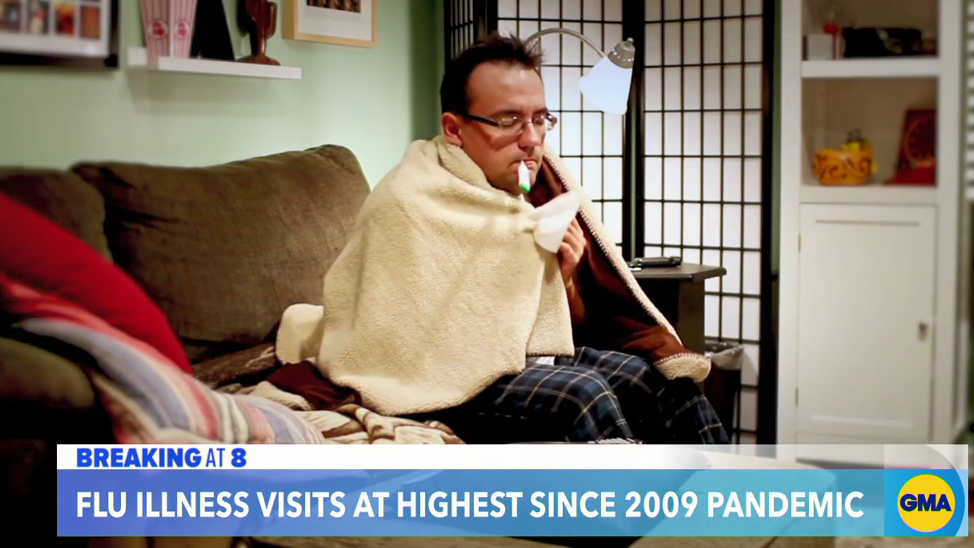
For the second time this season, flu cases are surging across the U.S., with at least 41 states reporting high or very high levels of the virus.
Emergency room visits for flu have jumped nearly 30% in the past week alone. The spike in cases has even forced temporary school closures in states like Texas and Tennessee.
Dr. Rabia de Latour, a gastroenterologist at NYU Langone Health, told CBS Mornings Plus that more than 20 million flu cases have been reported so far this season, leading to 250,000 hospitalizations and over 11,000 deaths.
“These numbers are staggering, but they’re similar to what we saw before the pandemic,” she said, pointing to several contributing factors.
“We became somewhat accustomed to lower flu rates during the pandemic because of COVID-19 precautions,” de Latour explained. “Those measures also reduced cases of RSV, the common cold, and flu, which created an immunity gap. Now, with lower vaccination rates and reduced natural immunity, our defenses are down.”

Is It Too Late to Get a Flu Shot?
Not at all! In fact, getting vaccinated is still highly recommended, says de Latour.
“As long as the flu virus is circulating, you can absolutely get vaccinated,” she explains.
Health officials advise that anyone 6 months and older should receive a flu shot.
“Flu season can last until May,” notes CBS News chief medical correspondent Dr. Jon LaPook. “Since the vaccine takes about two weeks to take effect, it’s definitely not too late—even in the middle of flu season.”
Is It a Cold or the Flu?
In general, cold symptoms are usually confined to the neck and above, such as a sore throat, cough, and runny nose, according to LaPook.
However, flu symptoms tend to affect you below the neck, including body aches, fever, and sometimes nausea, vomiting, and diarrhea.
It’s important to seek a diagnosis from your healthcare provider to get the right treatment, LaPook advises.
“Stay in touch with your healthcare provider, as the flu can make you really sick, and there are cases that lead to hospitalization,” he added.
How Long Is the Flu Contagious?
Flu viruses can be detected in most infected individuals starting one day before symptoms appear, and they can continue to be contagious for five to seven days after becoming sick.
At-home flu tests, which have become more common, can help people identify whether they have the flu. “The biggest benefit of these tests is that they help you understand what you have, allowing you to take steps to prevent spreading it,” says de Latour. “People are more likely to stay home and isolate if they know they have the flu, especially to protect those who are immunocompromised or vulnerable.”
While there’s no definitive cure for the flu, an antiviral medication called Tamiflu can help reduce the duration of symptoms. However, it’s typically recommended for those at high risk, such as young children, pregnant women, or people with severe conditions like heart disease or diabetes.
Whooping Cough Cases on the Rise
In addition to the flu, whooping cough (pertussis) cases have been increasing in the U.S. The CDC reports a 27% rise in cases over the past week.
Whooping cough is particularly dangerous for infants because their small airways make it hard for them to breathe. “With infants, their airways are so small they can have trouble breathing at all,” LaPook explains.
An effective vaccine for whooping cough, part of the Tdap vaccine, protects against tetanus, diphtheria, and pertussis. However, infants can’t receive the vaccine until they’re two months old, so they rely on adults being vaccinated to help protect them.


